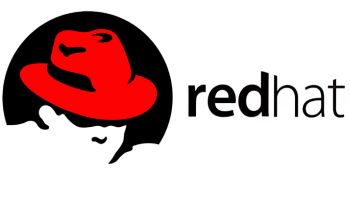Red Hat Openly Commits To AMQP Messaging

Red Hat emphasises its support for the open-source Advanced Message Queuing Protocol
Red Hat has affirmed its commitment to the open-source Advanced Message Queuing Protocol (AMQP) as the company’s strategic messaging protocol going forward.
Red Hat announced its endorsement and support for AMQP, an open, unencumbered integration protocol for business messaging, in conjunction with the AMQP Conference held inNew Yorkwhere AMQP 1.0 was officially launched. The conference was held at the headquarters of JPMorgan Chase because AMQP has caught on heavily in financial sector IT shops.
Major Protocol Contributor
As a founding member of the AMQP working group, Red Hat has been a leader in the establishment of AMQP as a frequently adopted open messaging protocol standard. The company has made key contributions to the protocol since its inception, including playing an active role in the development and editing of the AMQP specification.
 Those contributions stem from Red Hat’s belief that the AMQP standard extends interoperability within and beyond the enterprise, Red Hat said in a press release. Indeed, Red Hat has been a significant investor in AMQP since the protocol was initially proposed.
Those contributions stem from Red Hat’s belief that the AMQP standard extends interoperability within and beyond the enterprise, Red Hat said in a press release. Indeed, Red Hat has been a significant investor in AMQP since the protocol was initially proposed.
For its part, Red Hat said AMQP is a critical infrastructure component for next generation solutions that require integration to extend beyond the traditional enterprise boundaries that were once the focus of legacy providers. Red Hat also feels the recent ratification of AMQP 1.0, along with the incorporation of the AMQP Working Group within the newly constituted OASIS AMQP Member Section, are key milestones in the evolution of this Internet protocol for business messaging, showing its relevancy to the future enterprise.
The AMQP working group sponsored the launch event in New York featuring a presentation from Red Hat customer Deutsche Borse Group, Eurex, the derivatives exchange of Deutsche Borse, which has deployed Red Hat Enterprise MRG Messaging as the integration fabric for its AMQP-based risk system.
“Deutsche Borse’s use of AMQP is a great illustration of the power of the protocol,” said Carl Trieloff, technical director at Red Hat and long-time AMQP working group contributor, in a statement. “It highlights the benefits of an open messaging protocol and the business benefits that are derived from fostering interconnectivity, seamlessly connecting Deutsche Borse with more than 100 different clearing members in what has proven to be an award-winning solution. Now, as a part of the Oasis standards initiative, we expect the appeal of AMQP-based messaging solutions to truly grow.”
Word Is Spreading
As the popularity of open messaging continues to expand, so does Red Hat’s support of the AMQP standard, exemplified by significant new enhancements that have been made to the company’s JBoss Enterprise SOA Platform and JEE Application Server. These products now support Red Hat’s Enterprise MRG Messaging – built on AMQP – thereby enhancing ESB and data services interoperability with non-Java platforms, such as applications written in languages like .NET or C++, the company said.
Moreover, Red Hat also demonstrated its commitment to AMQP last year when the company released client APIs that abstract away from the underlying version of the AMQP protocol. This is designed to facilitate customers’ transition to AMQP 1.0 and offer the ability to do a staged rollover of existing deployments when AMQP 1.0 becomes available in the product.
“The ratification of AMQP as a standard, open protocol for message-based communication is a major milestone for customers and information technology as a whole,” said Craig Muzilla, vice president and general manager of Red Hat’s Middleware Business, in a statement. “We believe the adoption of message-based systems will gain momentum now that customers will achieve faster innovation and not feel locked in. Red Hat is committed to AMQP as a game-changer, and we have incorporated its use into our messaging and other JBoss middleware solutions.”